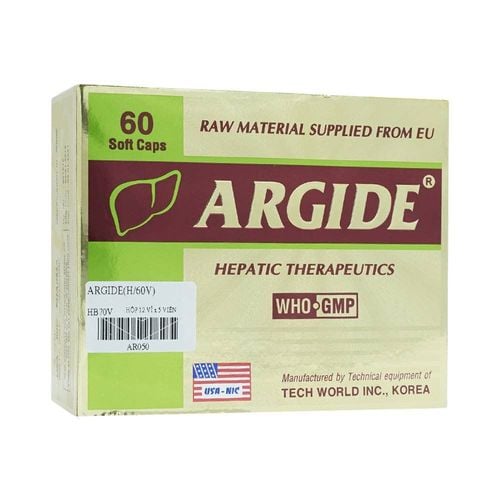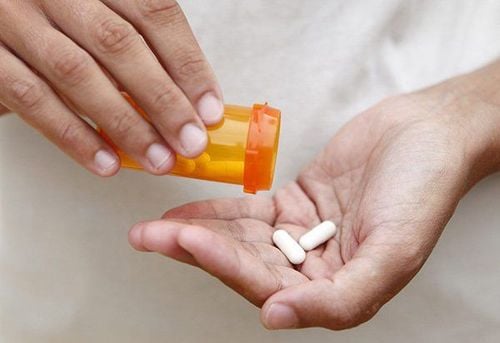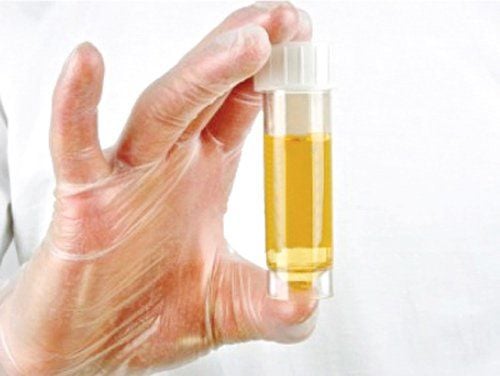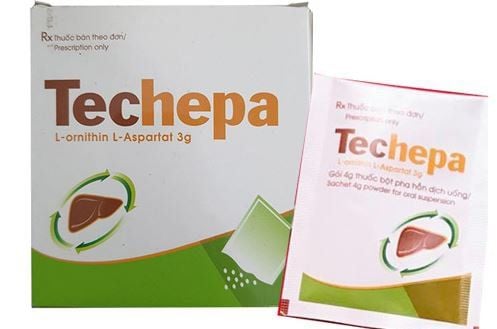This is an automatically translated article.
Lipicard 160 is a product of USV India. This medicine contains the active ingredient Fenofibrate, so it is indicated in the treatment of dyslipidemia. So what is the indication and recommended dose of Lipicard 160?1. What is Lipicard 160?
The main ingredient of Lipicard 160 is the active ingredient Fenofibrate (in the form of microparticles) with a content of 160mg. In addition, each Lipicard 160 tablet contains a number of excipients, including Cremophor RH40, Starch 1500, Talc and Colloidal Silicon dioxide.Fenofibrate is an active ingredient that controls blood lipids, especially lowering serum triglyceride levels.
The exact mechanism of action of Fenofibrate is still unknown. However, fenofibric acid, the active metabolite of fenofibrate, has the ability to lower blood triglycerides through inhibition of triglyceride synthesis, leading to inhibition of VLDL release into the systemic circulation. At the same time, fenofibric acid also stimulates the catabolism of VLDL (a type of lipoprotein rich in triglycerides).
In addition, fenofibrate in Lipicard 160 can also reduce serum uric acid levels in patients with hyperuricemia and in normal people by increasing urinary excretion of this substance.
2. Indications and contraindications of Lipicard 160
Lipicard 160 is indicated for the treatment of patients with type IIa, IIb, III, IV and V hyperlipidemia when dietary diet is not effective.
Contraindicated to use Lipicard 160 for the following patients:
Liver dysfunction, including primary biliary cirrhosis, patients with persistent abnormal liver function of unknown cause; Renal dysfunction ; History of gallbladder disease; Hypersensitivity to Fenofibrate and excipients contained in Lipicard 160.
3. Dosage of Lipicard 160
Before taking Lipicard 160, patients with dyslipidemia should apply an appropriate diet to help lower blood triglyceride/cholesterol levels and then should remain on this diet throughout the course of treatment. treatment with Lipicard 160. The recommended daily dose of Lipicard 160 is to take 1 tablet with food.
Theoretically, because fenofibrate is strongly bound to plasma proteins, cases of overdosage with the recommended dose should be considered for hemodialysis therapy. However, to date there have been no reported cases of Lipicard 160 overdose, if any, appropriate symptomatic treatment should be considered.
4. Side effects of Lipicard 160
The results of the studies showed that undesirable effects were observed in about 1% of patients treated with Fenofibrate, in which adverse events that led to the patient's discontinuation occurred in about 6% of patients. In most cases, the appearance of a skin rash will cause the patient to stop taking Lipicard 160.Some other undesirable effects may occur when using Lipicard 160 :
Hepatitis , gallstone formation, cholecystitis or hepatomegaly; Myalgia, myasthenia gravis, myoglobinuria; Skin with increased sensitivity to light or eczema; Allergic bronchitis.
5. Drug interactions of Lipicard 160
Oral anticoagulants should be used with caution when co-administered with Lipicard 160 because Fenofibrate has similar anticoagulant properties to coumarin, which may prolong prothrombin time. Therefore, in cases where 2 drugs are used concurrently, the anticoagulant dose should be reduced to maintain the desired prothrombin time test results. Concomitant use of Lipicard 160 with HMG-Co reductase inhibitors (also known as Statins) so far there are no data on possible interactions. However, combining chemical and pharmacological analogues of fenofibrate (eg, Gemfibrozil) with simvastatin results in a risk of combined myoglobinuria and a significant increase in creatinine kinase (CK) levels, which in turn increases the risk of myoglobinuria. greater decline in renal function.
6. Be careful when using Lipicard 160
Because Fenofibrate is chemically, pharmacologically and clinically similar to Gemfibrozil or Clofibrate, the adverse clinical trial results of these drugs may also apply to Lipicard 160. Elevated serum levels of hepatic transaminases such as AST and/or ALT have been reported in patients treated with fenofibrate. Elevated levels of these liver enzymes are usually reversible when the patient stops taking the drug, or in some cases, liver enzymes can return to normal while the patient is still taking the drug. Therefore, the cases of treating dyslipidemia with Lipicard 160 should be regularly monitored periodically for liver transaminase levels. If gallstones are suspected, the patient should take steps to examine the gallbladder and discontinue Lipicard 160 if gallstones are found. Cases of using Lipicard 160 complain of pain, tenderness and muscle weakness... then the patient should be examined and have blood tests immediately (including serum CK level test). Patients with suspected or confirmed myopathy should immediately discontinue treatment with Lipicard 160. The safety and effectiveness of Lipicard 160 in children have not been established. Fenofibrate was potentially embryotoxic and teratogenic in large rats in studies at doses 7 to 10 times the maximum recommended human dose. However, there are still no satisfactory controlled studies performed in pregnant women, so Lipicard 160 should only be used if the potential benefit outweighs the potential risk to the fetus. Lipicard 160 should not be used in nursing women because fenofibrate has been shown to be carcinogenic in animal studies. Patients who are breast-feeding should decide whether to discontinue nursing or discontinue Lipicard 160.
Please dial HOTLINE for more information or register for an appointment HERE. Download MyVinmec app to make appointments faster and to manage your bookings easily.













